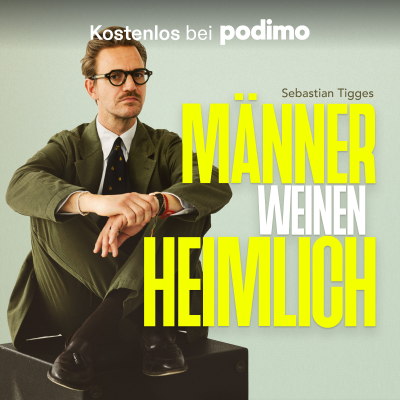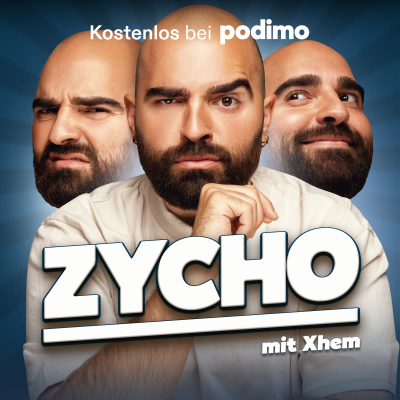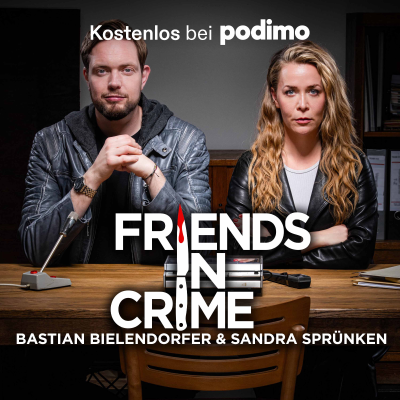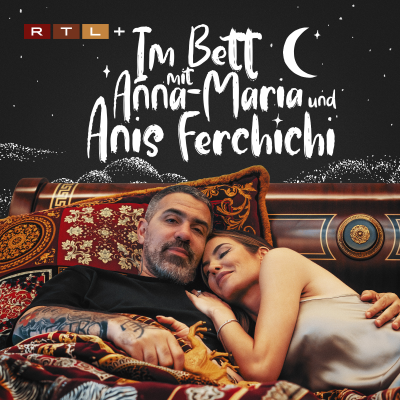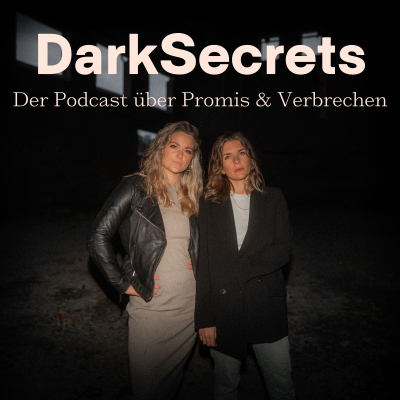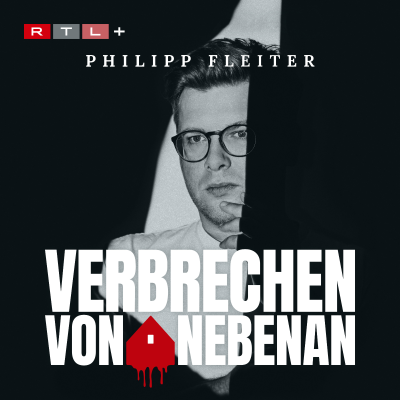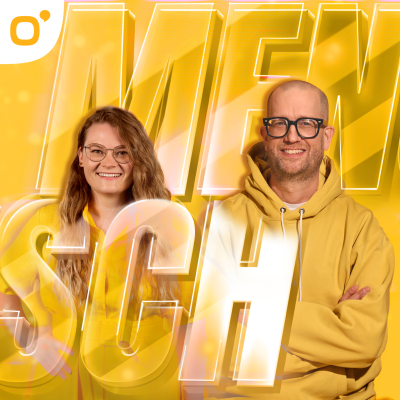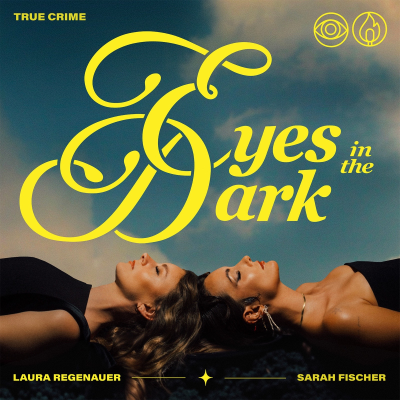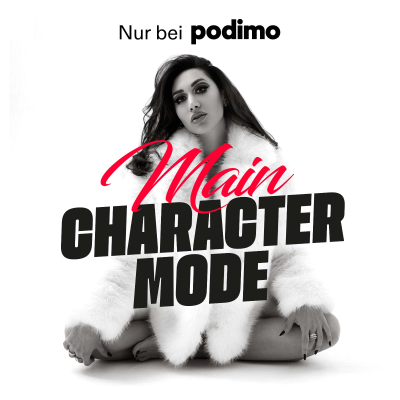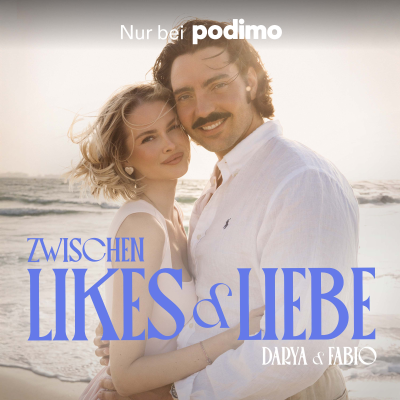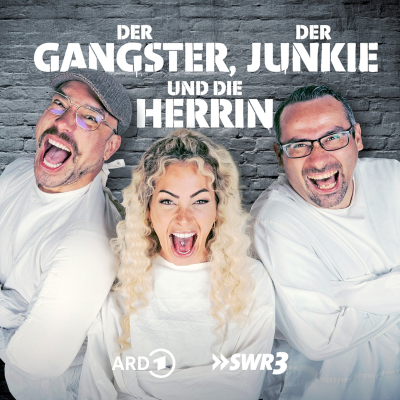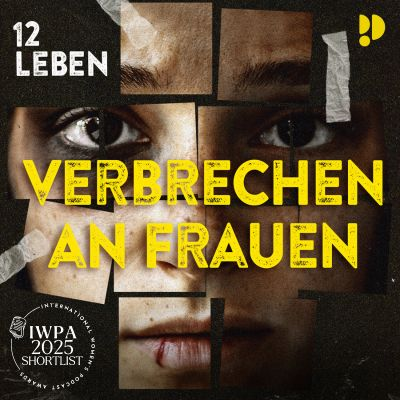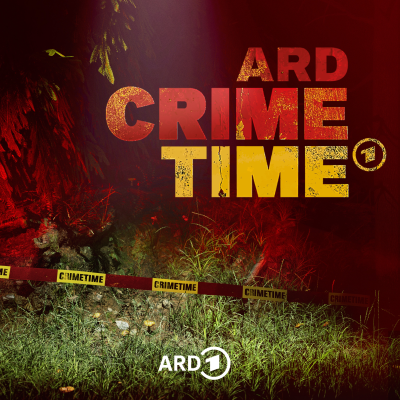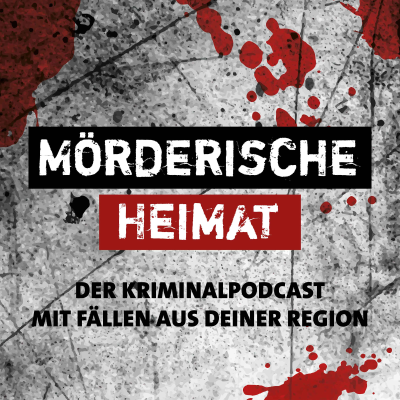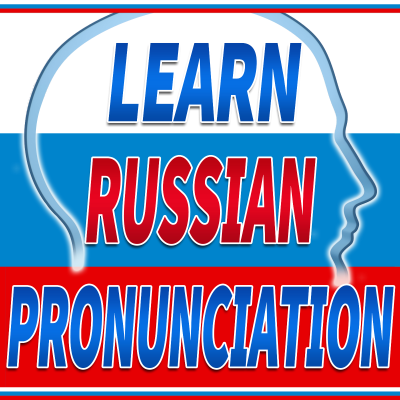
Learn Russian Pronunciation
Podcast von Learn Russian Pronunciation
Nimm diesen Podcast mit
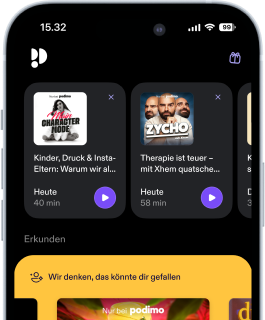
Mehr als 1 Million Hörer*innen
Du wirst Podimo lieben und damit bist du nicht allein
Mit 4,7 Sternen im App Store bewertet
Alle Folgen
20 Folgen[https://rme-audios-for-apps.s3.amazonaws.com/LRPAudios/LRP-EP20.jpg]Full Episode Audio Exercises Only Audio Download Full Episode (right click save-as) [https://rme-audios-for-apps.s3.amazonaws.com/LRPAudios/LRP-EP20.mp3] Download Exercises [https://rme-audios-for-apps.s3.amazonaws.com/LRPAudios/LRP-EXERCISES-20.mp3] Welcome to episode 20 – the final exam. You should feel proud for having made it this far. It’s a small course, but still…you put in the time and effort. After this exam you should treat yourself to something..I recommend Russian blini. Ever try them? Блины are basically crepes—very thin pancakes, usually filled with some jelly or sweet cheese inside. They’re a Russian delicacy. In fact, try to say… I want to cook (or, more literally, ‘prepare’) blini. Я хочу приготовить блины. Speaking of popular Russian foods, have you ever tried пельмени? They’re basically dumplings filled with meat…usually pork. Here’s the word again. пельмени So try to say: I want to cook dumplings. Я хочу приготовить пельмени. With two words, ask your roommate: Want shishkabob? Хочешь шашлык? Want dumplings? Хочешь пельмени? He shrugs and says the Russian word for, Okay. Хорошо. Moving on: Try to say: My mother lives in Odessa. Моя мама живёт в Одессе. My dad lives in Kharkov. Мой папа живёт в Харькове. Anastasia is traveling to Dubai. Анастасия едет в Дубай. I’m traveling to Munich. Я еду в Мюнхен. Speaking of traveling, say: In New York I want to see Times Square. В Нью Йорке я хочу увидеть Таймс Сквер. Quick quiz on voicing and devoicing. Imagine these three Russian letters: В-С-Е How will that word be pronounced? Will the ‘В’ be voiced? все It was devoiced because, if you remember that pattern, the last letter in a cluster determines whether your vocal cords are involved. Right? So, since the ‘S’ sound (С) is naturally devoiced, it affects the “v” sound that comes before it. So not “V-syeh” but an “F” sound: Fsyeh And we’re going to need that word, which means “all”, in this next sentence. I want to see all the main tourist sites in Paris. Я хочу увидеть все достопримечательности в Париже Try that again. I want to see all the main tourist sites in Amsterdam. Я хочу увидеть все достопримечательности в Амстердаме. I think that was the longest sentence in the whole course. In your studies, you’ve probably encountered the word кафе, which is how Russians pronounce cafe. So try to say: I’m going to the cafe. (implying, on foot) Я иду в кафе. Now that word we use for “to” the cafe…it’s the letter В. But was it voiced or no? Say the phrase again: I’m going to the cafe. Я иду в кафе. So it was devoiced. But why? Because the letter that follows, the ‘k’ of cafe is naturally devoiced. And even though it’s a separate word, in Russian, prepositions like “to, from, for” and so on, are treated as if they are part of the word that follows. We do that in English too, right? We say: I’m going t’McDonalds. We don’t say: I’m going **to** McDonalds. The word “to” basically gets absorbed into the beginning of McDonalds. Say: I’m going to the park. Я иду в парк. Again, ‘В’ is devoiced because of the ‘П’ in парк. Now say… I’m going to Burger King. Я иду в Бургер Кинг. There, the ‘В’ is voiced…В Бургер Кинг…because the ‘Б’ in Бургер is naturally voiced. How will your friend ask: Where is Burger King located? Где находится Бургер Кинг? Tell her: Burger King is located downtown. Бургер Кинг находится в центре. Let’s try this. Two phrases: I’m going to the cafe. I want dumplings. Я иду в кафе. Я хочу пельмени. The word for a mini-market in Russian is an easy cognate. Listen… мини-маркет So try this: I want yogurt. I’m going to the mini-market. Я хочу йогурт. Я иду в мини-маркет. Before the word мини-маркет…was that В voiced? I want a magazine. I’m going to the mini-market. Я хочу журнал. Я иду в мини-маркет. Next…Try to say: Taras was in St. Petersburg. Тарас был в Санкт-петербурге. Imagine that your friend is a violinist and she, somehow, misplaced her instrument. It’s not in the car, not in the hotel…and then she finds it. How will she say: The violin was in the theater. Скрипка была в театре. Of course, because Скрипка ends with an “ah” sound, making it feminine, she used the feminine past tense—была—to match. (Or to rhyme, really.) Let’s try that phrase again, but add an expression of relief. Thank God. The violin was in the theater. Слава Богу! Скрипка была в театре. Next: How do we convey the idea that: I like rock…as in, rock music. To me….is pleasing….rock. Мне нравится рок. Say: I like jazz. Мне нравится джаз. The final letter was a Z (З), which is normally voiced. But, being at the end of the word, Russians devoice it. Say: I really like jazz. To me…very pleasing…jazz. Мне очень нравится джаз. One last example of devoicing the final consonant…What’s the Russian version of Oh, my God? О, мой Бог. That final letter is a G (Г)…normally voiced as.’guh’… but that’s the pattern in Russian. They get devoiced at the end of a word. Speaking of endings…We’re at the end, not only of this exam, but of the whole course. Hopefully, though, this isn’t goodbye. I have two other podcasts that you can get. Russian Made Easy …and my newest one… Understanding Spoken Russian. Or, if you want to really speed things up, then I hope you’ll join my Russian Accelerator course [http://russianaccelerator.com/sign-up.html]. We’ll get you conversational in Russian in just a few months. See you soon! До встречи
[https://rme-audios-for-apps.s3.amazonaws.com/LRPAudios/LRP-EP19.jpg]Full Episode Audio Exercises Only Audio Download Full Episode (right click save-as) [https://rme-audios-for-apps.s3.amazonaws.com/LRPAudios/LRP-EP19.mp3] Download Exercises [https://rme-audios-for-apps.s3.amazonaws.com/LRPAudios/LRP-EXERCISES-19.mp3] Welcome to episode 19 – our last new material before the final. Hopefully you’ve noticed that, as this course progressed, I tried to get you working on things that you’re likely to say. Again, this is why I veered away from mindless pronunciation drills and tongue twisters. With that goal of practicality firmly in mind, today we’ll be learning two new verbs. Like in English, Russian verbs have an infinitive form, and then something called conjugations. Take the English verb “to be”—that’s the infinitive. The conjugations are: I am, You are, He is, and so on. So, talking only about the infinitive forms here, in Russian, almost all verbs end with a T and a soft-sign. Listen and repeat… дать играть сказать покупать For comparison, let’s listen to those without the soft sign: дат — играт — сказат – покупат ..and with the soft sign again… Those all had an ‘a’ vowel before that T. Let’s hear some with an И as the final vowel. говорить купить ездить приготовить All of those are useful, but today, let’s work with that last one. Here it is in context: Even though the kids had cereal for breakfast, they still seemed to be hungry so I decided to приготвить some scrambled eggs. …or this… I’m a big fan of Italian food, so for my birthday, my wife got me a book called How to Приготовить the Perfect Lasagna. Imagine you’re in your friend’s kitchen just before supper time. She straps on an apron and says: Я хочу приготовить борщ. How would you translate that? I want to cook, or to prepare, borscht. You try it. Say: I want to cook cabbage soup. Я хочу приготовить щи. I want to cook shishkabob. Я хочу приготовить шашлык. Getting back to the infinitive form of Russian verbs, let’s listen to some more. смотреть гулять заснуть видеть Again, those are all very useful verbs, but it’s that last one I want to focus on: видеть Can you get the meaning from context? The other day I was reading a book to my little girl which explained our sense organs. We use our nose to smell, it explained. Our ears to hear, and our eyes to …видеть. Fill in the blank: Someone who is deaf is unable to hear. Someone who’s blind is unable to… Now here’s the thing about Russian verbs—and again, it’s something I cover in great detail in all my other courses—Russian verbs come in pairs. One version is used when talking about the action in general, or when emphasizing the process of it. Whereas the other version is used when you want to emphasize the result. That you finished doing whatever it was. For ex: We use our eyes to see. That’s talking in general, about the process of seeing. So the verb видеть is the general version—what’s known as the “imperfective.” But take a phrase like this: We went to New York to see the Statue of Liberty. Here, all the focus is on the result. They saw it, and that’s that. And that version in Russian is увидеть. Almost the same as видеть but with the letter ‘у’ at the front. увидеть So, with that in mind, can you translate the following sentence? В Лондоне, я хочу увидеть Биг-Бен. In London I want to see Big Ben. You try it. Say: In London I want to see Westminster. (Wild guess on how Russians will pronounce that ‘W’) В Лондоне, я хочу увидеть Вестминстер. In New York I want to see Broadway. В Нью Йорке, я хочу увидеть Бродвей. In St. Petersburg, I want to see the Hermitage. (pronounced: Эрмитаж) В Санкт-Петербурге, я хочу увидеть Эрмитаж. Let’s try one more round of infinitives. In these, the final vowel will be an Ы. Listen and repeat… быть мыть открыть закрыть Again, compare the difference…without the soft sign at the end: закрыт …and with it: закрыть Let’s do some review. Try to say: I want to prepare, or cook, soup. Я хочу приготовить суп. In Los Angeles I want to see Disneyland. В Лос Анджелесе я хочу увидеть Дисенейленд. And from the previous lesson: Igor lives in Odessa. Игорь живёт в Одессе. Anastasia is traveling to Rome. Анастасия едет в Рим. One more round… I want to cook ravioli. Я хочу приготовить равиоли. In Los Angeles I want to see Beverly Hills. В Лос Анджелесе я хочу увидеть Беверли-Хиллз. Veronika lives in Munich. Вероника живёт в Мюнхене. Robert is traveling to Stuttgart. Роберт едет в Штутгарт. I’m traveling to Liverpool. Я еду в Ливерпуль. Did you catch the soft-sign at the end? If you did you have a great ear. Alright, be sure to visit the site for the transcripts and exercises, and I’ll see you in the next episode… the final exam!
[https://rme-audios-for-apps.s3.amazonaws.com/LRPAudios/LRP-EP18.jpg]Full Episode Audio Exercises Only Audio Download Full Episode (right click save-as) [https://rme-audios-for-apps.s3.amazonaws.com/LRPAudios/LRP-EP18.mp3] Download Exercises [https://rme-audios-for-apps.s3.amazonaws.com/LRPAudios/LRP-EXERCISES-18.mp3] Alright, this is episode 18 of Learn Russian Pronunciation. Today we’re going to expand on what we did in the last episode by including people’s names into the mix. Let’s start with the name Igor. Listen to it in Russian: Игорь There’s a soft-sign at the end. For comparison, here’s how it would sound without that. Игор But again, properly, it’s: Игорь. Try to say: Igor was in the theater. Игорь был в театре. Now listen as the speaker says: Igor lives in Brooklyn. Игорь живёт в Бруклине. That’s our official phrase for today, and we’ll be using it a lot, as we practice new names and places. So, the speaker will same a name and a city. Repeat each one, and then say that that person lives in that city. For ex: Тарас / Мельбурн Тарас живёт в Мельбурне. Careful with the soft-sign in there, after the letter Л. And did you add the ‘yeh’ sound at the end? Listen again… Тарас живёт в Мельбурне. Again, the reasoning for why we have to add the ‘yeh’ sound…that is beyond the scope of these lessons. But I cover it in great detail in all my other courses. I hope you advance to one of them after this pronunciation course. Anyway, next… Анастасия / Дубай Анастасия живёт в Дубае. Next: Борис / Иерусалим Борис живёт в Иерусалиме. Out of curiosity, can you guess which place this is? Квебек In English, we call it: Quebec. Anyway… Татьяна / Квебек Татьяна живёт в Квебеке. Next: Олег / Амстердам Олег живёт в Амстердаме. Doing a little review: How would you say: I’m going to the park. Я иду в парк. That was from episode #16. иду is the ‘on foot’ version of “going”. Now try to say: I’m traveling to Quebec. Я еду в Квебек. еду is the “by vehicle” form of going. Listen as the speaker says: Igor is traveling to Minsk. Игорь едет в Минск. Say: I’m traveling. Taras is traveling. Я еду. Тарас едет. New name, new city. Listen? Сергей / Мюнхен So try to say: Sergei is traveling to Munich. Сергей едет в Мюнхен. Now say: Sergei lives in Munich. Сергей живёт в Мюнхене. Next: Екатерина / Сидней Try to say: Ekaterina is traveling to Sydney. Екатерина едет в Сидней. Next… Вероника / Севастополь So try to say: Veronika lives in Sevastopol. Вероника живёт в Севастополе. What country do you think this is? Китай China. And here’s a new name for you: Артём So try to say: Artyom is traveling to China. Артём едет в Китай. Next: Дарья / Цюрих Daria lives in Zurich. Дарья живёт в Цюрихе. Say: I’m traveling to Zurich. Я еду в Цюрих. Mixing in some locations from the previous lesson, try to say: Sasha lives in Paris. Саша живёт в Париже. Roger is traveling to Madrid. Роджер едет в Мадрид. My wife was in St. Petersburg. Моя жена была в Санкт-Петербурге. Vova is traveling to Kiev. Вова едет в Киев. I really like Chicago. What’s the super literal translation for that? To me very pleasing Chicago. Мне очень нравится Чикаго. Try that again. I really like Amsterdam. Мне очень нравится Амстердам. That’s a lot to absorb, so be sure to head over to the site, russianpronunciation.com [https://russianpronunciation.com] to read the transcript and practice with all these names. And in the meantime, I’ll see you in Ep 19.
[https://rme-audios-for-apps.s3.amazonaws.com/LRPAudios/LRP-EP17.jpg]Full Episode Audio Exercises Only Audio Download Full Episode (right click save-as) [https://rme-audios-for-apps.s3.amazonaws.com/LRPAudios/LRP-EP17.mp3] Download Exercises [https://rme-audios-for-apps.s3.amazonaws.com/LRPAudios/LRP-EXERCISES-17.mp3] Welcome to episode 17. Today we’ll deal with a very common pronunciation problem: The names of places. Like I mentioned back in Episode 2, the first time I heard someone say ‘Рим’ I had no idea what they were talking about. I figured out it was a city, but the vowel was so different I didn’t get it until she added, Колизей, Ватикан…Понимаешь? “Oh! She’s talking about Rome.” Place names are always tough to pronounce because we so much want to say them the way we do in English. So let’s start with some places in the U.S. Listen carefully, and repeat: Вашингтон That was the Russian version of Washington. Notice the ‘V’ sound up front. The letter W always poses a problem for Russians. They say ‘Vash’ instead of ‘Wash’. And do you hear the consonant cluster in there? An ‘N-G-and-T’? Listen again and tell me if the G (Г) is voiced or not. Вашингтон The G is devoiced, becoming what sound? A ‘k’…vash-ink-tone You might think, Why do I have to work on this? Surely they’ll understand me if I call the city ‘Washington’. That’s its name, after all. That’s true. I’m sure they would…but it would be pretty jarring. I mean, when you’re speaking English, you wouldn’t tell your friends, “Yeah, so me and my buddies we’re gonna take a trip to Москва this summer. Then we might head over to Paris, and then to København.” In English, we say Moscow and Paris and Copenhagen. Those are the correct pronunciations and it’s odd to hear them any other way…even if those are correct in their origin languages. Next: Which U.S. state is this? Делавэр Again, the English W is problematic for Russians…even though they have the fundamental sounds. They could say…Дэл-у-эр…But they prefer to make it a V sound. Listen again. Делавэр So, Russian prefers a ‘V” sound for our ‘W’ except…inexplicably…for the city of Wichita. Listen.. Уичито See? They can do it if they apply themselves. Here, Russian makes an effort to approximate the sound. They use ‘У-И’ to make our ‘W’. Another letter that Russian can never decide on is the English letter ‘H’. Sometimes they make it a G sound. Can you guess these locations? Гавайи Огайо Бирмингем The first one was Hawaii. Listen again…Then Ohio…very odd, to my ear, having that G (Г) in there. But what can you do? And then Birmingham. It ends with a ‘gehm’ sound. And yet, these next ones, which also feature an English ‘H’…Russian went with a ‘X’ sound. Хьюстон Оклахома Айдахо Go figure. And speaking of odd choices, check this one out. The great state of… Мичиган Oddly, Russian changed the “sh” sound – MISHagan…to a “ч”. It’s as if they based it purely on the spelling and not how it actually sounds. Right? Someone saw the “ch” there, and said: Ok, here’s the official spelling. We’ll just use out letter Ч for that. Same with the city of… Чикаго Russianhas a “Ш” sound…but someone saw that ‘ch’ and went with Ч. Sticking with North America, which city is this? Торонто So, Toronto – Торонто – is a great example of how, in Russian, all unstressed O’s sound like ‘uh’. And still in Canada, Russian went with the French version of Montreal. Listen.. Монреаль No ‘T’ sound in there. And careful with that soft-sign at the end. Listen again… Before moving on to cities and countries on the other side of the Atlantic, let’s review that phrase we learned in the last episode. Try to say…I’m going to McDonalds. Я иду в Макдоналдс. Was our ‘В’ voiced or devoiced? It was a full ‘В’ because of the M in Макдоналдс. Now say you’re going to Starbucks. Я иду в Старбакс. Because of the voiceless ‘Ст’ combination, our ‘В’ is reduced to an F sound. Now, the verb иду translates as going…but only by foot, going to places about town. Places you could conceivably get to by foot. So let’s learn the vehicle version of that. It’s very similar. еду For ex: I’m traveling to Toronto. (obviously by vehicle) Я еду в Торонто. Our ‘В’ is devoiced, because of the voiceless T in Торонто. Your turn. Try to say: I’m traveling to Chicago. Я еду в Чикаго. I’m traveling to Washington. Я еду в Вашингтон. I’m traveling to Montreal. Я еду в Монреаль. Excellent. Ok, now let’s move across the pond, as they say. Which European capital is this? Париж Paris. And this city? Осло Oslo. Again, a reminder that all unstressed O’s sound like ‘uh’. And that, really, is what I’m using all these names for in this episode…as a reminder of the various pronunciation patterns we’ve learned. Next: Listen to how Russians pronounce their city of St. Petersburg… Санкт-Петербург What happens to the G (Г) at the end? Devoiced, which turns the Г into a K sound. “boork” Or in Spain, the city of….Мадрид Again, there’s our pattern of devoicing the final consonant. A devoiced Д sounding like T. But remember, if we add a vowel after the Д, it becomes voiced again. So try to say: Papa was in Madrid. Папа был в Мадриде. Same with the devoiced ‘Г’ at the end of St. Petersburg. If we add a vowel, the voicing returns. Mama was in St. Petersburg. Мама была в Санкт-Петербурге. The capital of Ukraine is Киев. A devoiced ‘В’ because it’s the final consonant. But if we’re in Kiev, we add that ‘yeh’ sound, which brings the voicing back. My husband was in Kiev. (And let’s include the word ‘my’ this time.) Мой муж был в Киеве. Hear the voiced ‘В’ now? But if we’re traveling to Kiev, we don’t add that sound. Try to say: I’m traveling to Kiev. Я еду в Киев. Let’s do a few more. I’m traveling to Oslo. Я еду…в Осло. …to Paris. Я еду в Париж. …to Madrid. Я еду в Мадрид. …to St. Petersburg. Я еду в Санкт-Петербург. Speaking of cities and pronunciation…What I find interesting is that the Ukrainian city – currently called Днепр after the river – used to be called Днепропетровск. They only changed the name just a few years ago, I’m sure to make it more visitor friendly. Which figures. I finally get the name down, and they go and change it. Anyway, practice with these new place names we learned, and I’ll see you in Episode 18.
[https://rme-audios-for-apps.s3.amazonaws.com/LRPAudios/LRP-EP16.jpg]Full Episode Audio Exercises Only Audio Download Full Episode (right click save-as) [https://rme-audios-for-apps.s3.amazonaws.com/LRPAudios/LRP-EP16.mp3] Download Exercises [https://rme-audios-for-apps.s3.amazonaws.com/LRPAudios/LRP-EXERCISES-16.mp3] Today I’d like to return to the topic of voiced and devoiced consonants, looking at other letters this time, and more importantly, examining how it works within consonant pairs and clusters. We recall that in an unfamiliar word, it’s often very hard to guess the last letter. Take the Russian word: дуб Is that word spelled Д-У-П ? – which is how it sounds – or Д-У-and a devoiced ‘Б’? Hearing the word in isolation like that, there’s no way to know. The issue here isn’t so much of developing our pronunciation. I mean, it’s no challenge to say the word дуб. The issue is realizing that what sounds like, for ex, a Z might simply be a voiced S. Or what sounds like a T might be a devoiced D, and so on. This not only helps with reading, of course, but with comprehending the things we hear. So let’s get to work. What I want to uncover is the pattern behind voicing and devoicing when consonants are grouped together. Tell me: The Russian letter ‘В’…is it voiced or devoiced? Put a hand to your vocal cords…Right. So spoken in isolation, ‘B’ is voiced. But listen to it here: Я иду в Старбакс. That was four words: Я…иду…в…Старбакс. That ‘F’ sound right before Starbucks was actually our Russian ‘В’. It was devoiced. But why? Let’s look at the phrase again but instead of saying Starbucks, let’s say: I’m going to McDonalds. Я иду в Макдоналдс. Again, it was four words: Я…иду…в…Макдоналдс. Suddenly our Russian ‘В’ is now voiced? What’s going on? Let’s look at some more examples. All of the following words will start with the Russian ‘В’. Tell me if it’s voiced or devoiced. Ready? волк…VOICED вообще…VOICED все…VOICELESS вторник…VOICELESS вполне…VOICELESS взаимно…VOICED вдали…VOICED вместе…VOICED What’s going on with those three words where the В was devoiced? все – вторник — вполне Hmm…I think I see a pattern: In Russian, voicing is determined by the last letter in a cluster. Take that first one: все Do you hear that ‘S’ sound? That letter—which looks like the English letter ‘C’—is naturally voiceless. That causes the В to devoice, making it an F sound. And the next word: вторник Again, the В becomes a voiceless F sound because the T that follows it is naturally voiceless. And the next word: вполне The П which follows is naturally voiceless, and that devoices the В into an F. Similarly, if the last consonant in a pair or cluster is voiced, then so are the ones preceding it….if possible. So we heard: взаимно. That 2nd letter is a Z (З) …naturally voiced, which voices our В as well. Then we heard: вдали. That 2ndletter Д is naturally voiced, which voices our В as well. And we heard: вместе The M is voiced, and therefore so is our В. For our official phrases, let’s use those that we heard at the start. I’m going to Starbucks. Я иду в Старбакс. The ‘В’ is devoiced here—it’s an ‘F sound. Why? Because the consonants that follow—the ‘ST’ (Ст )of Старбакс, are voiceless. But if we’ going to McDonalds… Я иду в Макдоналдс. It’s a voiced ‘В’ sound. Why? Because the M of Макдоналдс is voiced. So basically, voicing shoots backwards from the end of the group. How about the phrase: I’m going to the theater. Will the ‘В’ be voiced or devoiced? Hit pause and think about it. Listen… Я иду в театр. Devoiced into an ‘F’ sound, because the ‘T’ of театр is voiceless. How about: I’m going to the park. Я иду в парк. Again, ‘F’ park…an F sound because the П in парк is voiceless. What if you’re going to the bank? Я иду в банк. Now it’s V bank…voiced, because the ‘Б’ in банк is voiced. Let’s work with a new letter. The Russian Д. On its own, it’s voiced. Like in these words… долго дар Дима But if it’s followed by a voiceless consonant? What sound will it become? Hit pause and think about that. Answer: The letter Д devoiced will sound like a T. Take the word ‘vodka’ which, in Russian, is: водка…(sounds like “вот-ка”). Because that ‘k’ is voiceless, it forces the Д to sound like a T. In Episode 13, if you recall, we worked with the letter Ж. On its own, it’s voiced. Like in these words… жар жить But if it’s followed by a voiceless consonant, how will it sound? Hit pause and think about that. Devoiced, the letter Ж sounds like “sh” (Ш). Listen to the following word, spelled L-O-ZH-K-A ложка Again, the ‘k’ is naturally voiceless, which turns the Ж into a Ш. All of this works in reverse. If the last letter is voiced, then voiceless consonants change into their voiced counterpart…if there is one. Take the Russian letter ‘C’. On its own it’s voiceless. Like in these words… сад сорт сила But if it’s followed by a voiced consonant, how will it sound? Like in English, a voiced S (C) sounds like a Z. Think of the word dogs(sounds like dogz). The following word starts with the letters С then Д. Listen: сделать Since ‘Д’ is naturally voiced, the С sounded like a Z (З)…Z-dyelat. If I asked my little boy to write out that word (сделать) I’m sure he’d use a Z (Зделать) because that’s how it sounds. These are not hard and fast rules. Some voiced consonants never change, no matter what. But I’m not going to list a bunch of rules for you to memorize, because that’s not how language is learned. We’re just pointing out the patterns, and trying to apply them to new situations. Before we go, how would you say: I’m going to the center. What sound will the letter ‘В’ have? Я иду в центр. Great job. See you in the next episode!
